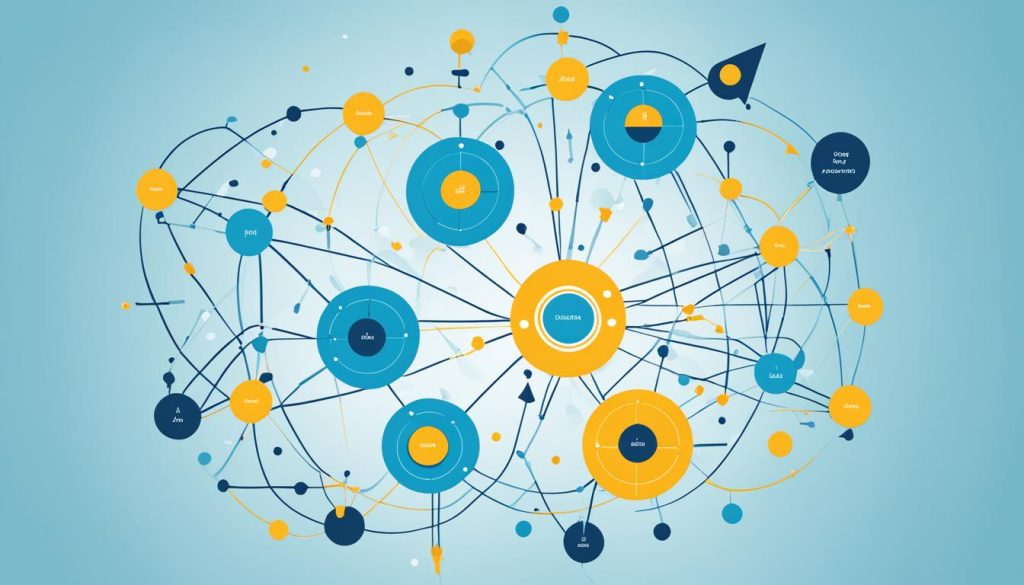As the third calendar year of the pandemic begins, 2022 promises to be an important one for education for a global world. Education systems have had to contend with sporadic closures, inequitable access to technology and distance learning tools, and challenges in maintaining students’ and teachers’ well-being. However, the pandemic has also led to promising new innovations, allies, and increased attention on global education. The key question is whether 2022 and the years ahead will lead to education transformation or long-lasting setbacks for students, teachers, and families. Experts from the Center for Universal Education share insights on the trends, policies, practices, and research they’ll be closely monitoring in the coming year and beyond.
Key Takeaways
- The COVID-19 pandemic has presented significant challenges for education systems around the world, including school closures, inequitable access to technology, and maintaining student and teacher well-being.
- Experts emphasize the importance of strengthening data-driven decision-making in global education to drive improved outcomes.
- Innovative approaches like Playful Learning Landscapes are emerging as ways to promote learning and social interaction beyond traditional school settings.
- There is a renewed focus on developing cross-cultural competence, global citizenship, and the integration of international perspectives in education.
- Addressing educational inequities, particularly for refugee children, is a critical priority for the global education community.
Addressing Challenges in Global Education
The COVID-19 pandemic has presented significant challenges for education systems around the world. School closures have disrupted learning, and inequitable access to technology and distance learning resources has exacerbated educational disparities. Maintaining the physical and emotional well-being of both students and teachers has also been a critical concern.
Impact of COVID-19 on Education Systems
The global education for a global world has faced unprecedented disruptions due to the COVID-19 pandemic. School closures have led to significant learning loss and have disproportionately impacted marginalized communities, further widening educational inequities. Experts emphasize the need to develop resilient education systems that can better withstand future crises.
Inequitable Access to Technology and Learning Resources
The shift to distance learning during the pandemic has highlighted the stark digital divide within and across countries. Students from low-income households have faced significant challenges in accessing the necessary technology and learning resources to continue their education effectively. Addressing this inequity in access is crucial for ensuring global citizenship and cross-cultural competence.
Maintaining Student and Teacher Well-being
The disruptions caused by the pandemic have also taken a toll on the mental health and well-being of students and teachers. Educators have faced increased stress and burnout, while students have reported higher levels of anxiety, depression, and social isolation. Experts emphasize the need to prioritize student and teacher well-being as part of a comprehensive approach to international perspectives in education.
To address these challenges, experts emphasize the need to strengthen the global education system through a renewed focus on data-informed decision-making. By leveraging real-time performance data, cost-effectiveness analysis, and innovative financing models, education systems can better support students and teachers, ultimately leading to more positive learning outcomes and the development of global competencies.
Strengthening Data-Driven Decision Making
The experts emphasize the crucial role of data-driven decision making in elevating global education. By harnessing real-time performance data, teachers and decision-makers can better support students throughout their educational journeys. Equally important is the need for high-quality cost-effectiveness data to identify and implement the most impactful and cost-effective interventions.
Real-Time Performance Data
Leveraging real-time data on student performance can empower educators to make informed, data-driven decisions that cater to the unique needs of each learner. This granular, timely information enables responsive adjustments to teaching strategies and resource allocation, ensuring students receive the personalized support they require to thrive.
Cost-Effectiveness of Educational Interventions
Alongside real-time data, high-quality program cost data is essential for evaluating the cost-effectiveness of various educational interventions. By rigorously analyzing the financial implications and return on investment, decision-makers can allocate resources more strategically, prioritizing the most impactful and financially prudent programs to drive sustainable improvements in educational outcomes.
Innovative Financing Models for Education
Emerging innovative financing models, such as impact bonds and outcomes funds, present promising opportunities to leverage data-driven decision making and drive positive change in global education. These novel approaches harness education data to align funding with measurable outcomes, incentivizing interventions that demonstrably improve student learning and development. Experts anticipate these innovative financing models will make a significant impact in 2022 and beyond.

Playful Learning Landscapes: Beyond School Walls
The pandemic has prompted a renewed focus on how we can prioritize learning and healthy development beyond the confines of traditional classroom settings. One innovative approach that has gained traction is the concept of Playful Learning Landscapes (PLL) – dynamic installations and programming that foster children and families’ learning through play in public spaces.
Enriching Learning Opportunities in Public Spaces
Experts at the Brookings Institution are at the forefront of measuring the impact of these playful learning landscapes to demonstrate their effectiveness and secure greater investment in this transformative approach. By strategically integrating learning opportunities into public spaces, PLL aims to create engaging environments that inspire curiosity, creativity, and social interaction among children and their caregivers.
Measuring Impact on Learning and Social Interaction
Brookings’ research framework is designed to assess the positive effects of PLL on learning outcomes as well as its potential to enhance social interaction and public life. By gathering data on factors such as increased physical activity, improved problem-solving skills, and strengthened parent-child bonds, the team hopes to provide a compelling evidence base that will drive further investment and adoption of these innovative learning beyond school initiatives.
As the world grapples with the lasting effects of the pandemic, the emergence of playful learning landscapes represents a promising shift towards prioritizing holistic child development and community-centered learning. By leveraging public spaces to create engaging, social interaction-rich environments, this approach holds the potential to redefine the boundaries of education and foster a more equitable, joyful, and impactful learning experience for all.
Education for a Global World
The pandemic has highlighted the importance of skills that supplement the learning of content, such as collaboration, communication, critical thinking, and creativity. It has become clear that the memorization of content alone will not prepare children for the jobs and society of the future. Experts emphasize the need for a “whole child” approach to education that encourages the development of a breadth of skills, including
cross-cultural competence
,
global citizenship
, and the
integration of international perspectives
. Aligning education with the needs of the modern, globalized world is a key focus for the years ahead.
Developing Cross-Cultural Competence
In a world that is increasingly interconnected, the ability to navigate diverse cultural contexts and engage effectively with people from different backgrounds is crucial. Educators must prioritize the development of cross-cultural competence, equipping students with the knowledge, skills, and attitudes needed to thrive in multicultural environments. This includes fostering an understanding of cultural differences, promoting empathy and respect, and providing opportunities for meaningful intercultural exchange and collaboration.
Fostering Global Citizenship
Cultivating a sense of global citizenship is essential for preparing students to participate actively and responsibly in the global community. This involves nurturing a deeper awareness of world issues, a commitment to sustainable development, and a sense of shared responsibility for addressing global challenges. By encouraging students to engage with diverse perspectives, consider the interconnectedness of local and global events, and develop a global mindset, educators can empower them to become agents of positive change.
Integrating International Perspectives
Incorporating international perspectives into the curriculum is crucial for broadening students’ horizons and preparing them for the realities of the 21st-century world. This may involve exposing students to diverse cultural narratives, exploring global issues from multiple viewpoints, and facilitating cross-cultural exchanges and collaborations. By embracing a global lens, educators can cultivate a deeper understanding of the world and the interdependence of its people, fostering the 21st century skills that are essential for success in a global world.

Addressing Inequalities in Education
The COVID-19 pandemic has disproportionately affected families living in communities challenged by discrimination and underinvestment, likely widening existing educational inequities. One group of particular concern is refugee children, who have historically had the least access to pre-primary education.
Early Childhood Education for Refugee Children
Experts highlight the need for more investment in early childhood education research and evaluation to improve evidence and channel resources effectively. Initiatives like Ahlan Simsim, which received the largest known grant to early education in a humanitarian context, are providing critical insights into supporting early childhood education for refugee children and their teachers.
Supporting Teachers in Refugee Communities
Ensuring that teachers in refugee communities have the necessary resources and support is crucial for delivering quality education to refugee children. Initiatives that focus on professional development, mental health support, and community-based collaboration can make a significant impact in empowering these educators to create inclusive and nurturing learning environments.
Evaluating Initiatives for Refugee Education
Rigorous evaluation of existing programs and new interventions is essential for understanding what works in improving educational outcomes for refugee children. By analyzing the effectiveness, cost-efficiency, and scalability of different approaches, policymakers and practitioners can make more informed decisions about where to allocate resources and how to replicate successful models across diverse refugee communities.
Preparing for Future Disruptions
The COVID-19 pandemic has demonstrated the need for education systems to be better prepared for future disruptions, whether from public health crises, natural disasters, or conflicts. Experts emphasize the importance of building resilient education systems that are structured to minimize the impact of catastrophic events on students and teachers.
Building Resilient Education Systems
To build resilience, education systems must incorporate life- and education-saving solutions into their core operations. This includes developing contingency plans, establishing communication protocols, and ensuring access to essential resources and supplies during emergencies.
Leveraging Technology for Distance Learning
The pandemic has accelerated the need to leverage technology for distance learning. Experts recommend investing in robust digital infrastructure, training teachers in effective virtual instruction, and ensuring equitable access to devices and internet connectivity for all students.
Curriculum Development for Emergency Situations
Additionally, education systems should prioritize the development of emergency curriculum that can be quickly deployed during disruptions. This curriculum should focus on core skills, mental health support, and adaptive learning strategies to sustain student progress and well-being.
By implementing these strategies, education systems can enhance their resilience to future disruptions and ensure that learning continues, even in the face of unexpected challenges. Preparing for the emergencies that are likely to happen is crucial for sustaining and advancing learning gains.

Empowering Girls’ Education
The COVID-19 pandemic has had a profound impact on the educational trajectories of girls, particularly in the Global South. Studies have begun to uncover both promising trends and persistent challenges faced by young women seeking to access and succeed in their schooling. In 2022, it will be essential to continue generating more nuanced, evidence-based insights on the specific experiences of girls’ education, with a focus on those living in poverty, conflict, and crisis situations.
Analyzing Gender-Specific Impacts
Researchers are working to better understand the ways in which the pandemic has affected girls’ education from a gender-specific lens. By closely examining factors such as school closures, household responsibilities, and access to distance learning, experts aim to shed light on the unique barriers and opportunities that have emerged for female students during this time. This granular data will be crucial in developing targeted interventions to support girls’ continued learning and empowerment.
Developing Strategies for Marginalized Girls
Experts emphasize the urgent need to prioritize the rights and educational outcomes of girls and young women living in the most marginalized communities. Innovative strategies must be implemented to protect these students, promote their access to quality education, and empower them to become transformative agents of change within their families and broader society. Investing in the education of marginalized girls has the potential to yield profound, long-lasting benefits for individuals, communities, and global development.
Research-Based Practices for Global Competence
To thrive in our globalized world, students must develop key global competencies, such as an informed understanding of contemporary global developments, awareness of local experiences as part of broader patterns, and a sense of identity as a member of the global community. Research has identified several learning activities that effectively support the cultivation of these essential skills.
Volunteering and Community Service
Engaging in community service projects and volunteering within the wider community can significantly contribute to the development of global competence. Through hands-on experiences, students gain a deeper appreciation for diverse perspectives, learn about the interconnectedness of global issues, and develop a sense of civic responsibility as members of the global community.
Celebrating Cultural Diversity
Participating in events and activities that celebrate cultural diversity helps students broaden their understanding and appreciation of different cultural traditions, customs, and worldviews. These experiences foster cross-cultural empathy, intercultural communication skills, and a deeper sense of global cultural diversity.
Classroom Discussions on World Events
Incorporating current events and global issues into classroom discussions encourages students to think critically about the world around them, analyze different perspectives, and develop a nuanced understanding of complex global competence challenges. These discussions promote critical thinking, communication skills, and a deeper engagement with the interconnected nature of the modern world.
These research-based practices are statistically linked to multiple dimensions of global competence and are widely perceived as effective by both students and teachers. By integrating these activities into the curriculum, educators can empower students to navigate the complexities of our globalized world with confidence and compassion.

Fostering Global Understanding in Schools
A study conducted by the Research Schools International (RSI) at the Ross School explored the development of global understanding among students and alumni. The study found that Ross students develop global understanding through three interwoven skill domains: recognition of a shared humanity, intercultural understanding, and a humanitarian orientation. These skills evolve in complexity over time, with students combining and differentiating discrete subsets of skills to form more intricate understandings at a higher level.
Developing Intercultural Understanding
The study highlighted the importance of fostering intercultural understanding in schools, as students learn to navigate diverse perspectives and cultures. This deeper appreciation for cultural differences equips learners with the empathy and communication skills needed to thrive in our increasingly globalized world.
Nurturing Humanitarian Orientation
Alongside intercultural understanding, the research also underscored the value of cultivating a humanitarian orientation in students. By developing a sense of shared humanity and a commitment to making a positive impact, students gain the motivation and agency to address pressing global issues and contribute to the greater good.
Incorporating Global Issues into Curriculum
To support the development of global understanding, RSI has collaborated with other international schools, such as Romerike International School and the International School of Boston, to integrate global competence and global understanding into their curricula and school cultures. This multifaceted approach ensures that students are exposed to diverse perspectives, challenged to think critically about global issues, and empowered to become responsible global citizens.

Conclusion
As the world continues to grapple with the challenges posed by the COVID-19 pandemic, the need for effective global education techniques has never been more pressing. The insights and research presented in this article underscore the critical importance of addressing the immediate challenges facing education systems, while also preparing for future disruptions and cultivating the skills and mindsets necessary for students to thrive in a globalized world.
By strengthening data-driven decision-making, leveraging innovative approaches like playful learning landscapes, and empowering educators to nurture global competence and understanding, the education sector can drive transformative change and ensure that all learners are equipped to navigate the complexities of the 21st century. The path forward is not without its obstacles, but the commitment and innovations highlighted in this article offer a glimpse of the promising future that lies ahead for global education.
As you reflect on the insights and strategies discussed in this article, consider how you can contribute to shaping the future of education and empowering the next generation of global citizens. By working together to address the immediate challenges and embrace the transformative potential of global education, we can create a more equitable and sustainable future for learners around the world.
FAQ
What are the key challenges facing education systems around the world due to the COVID-19 pandemic?
How can data-driven decision-making help strengthen global education?
What is Playful Learning Landscapes, and how can it enhance learning beyond the classroom?
Why is a “whole child” approach to education important in preparing students for the modern, globalized world?
How can education systems better support the needs of marginalized groups, such as refugee children?
Why is it crucial for education systems to be better prepared for future disruptions?
What are the key learning activities that effectively support the development of global competence in students?
How can schools foster global understanding among their students and alumni?
Source Links
- https://www.brookings.edu/articles/global-education-trends-and-research-to-follow-in-2022/
- https://www.linkedin.com/pulse/navigating-global-education-reform-insights-from-mckinseys-spark-o9vue
- https://www.researchschoolsinternational.org/global-education
